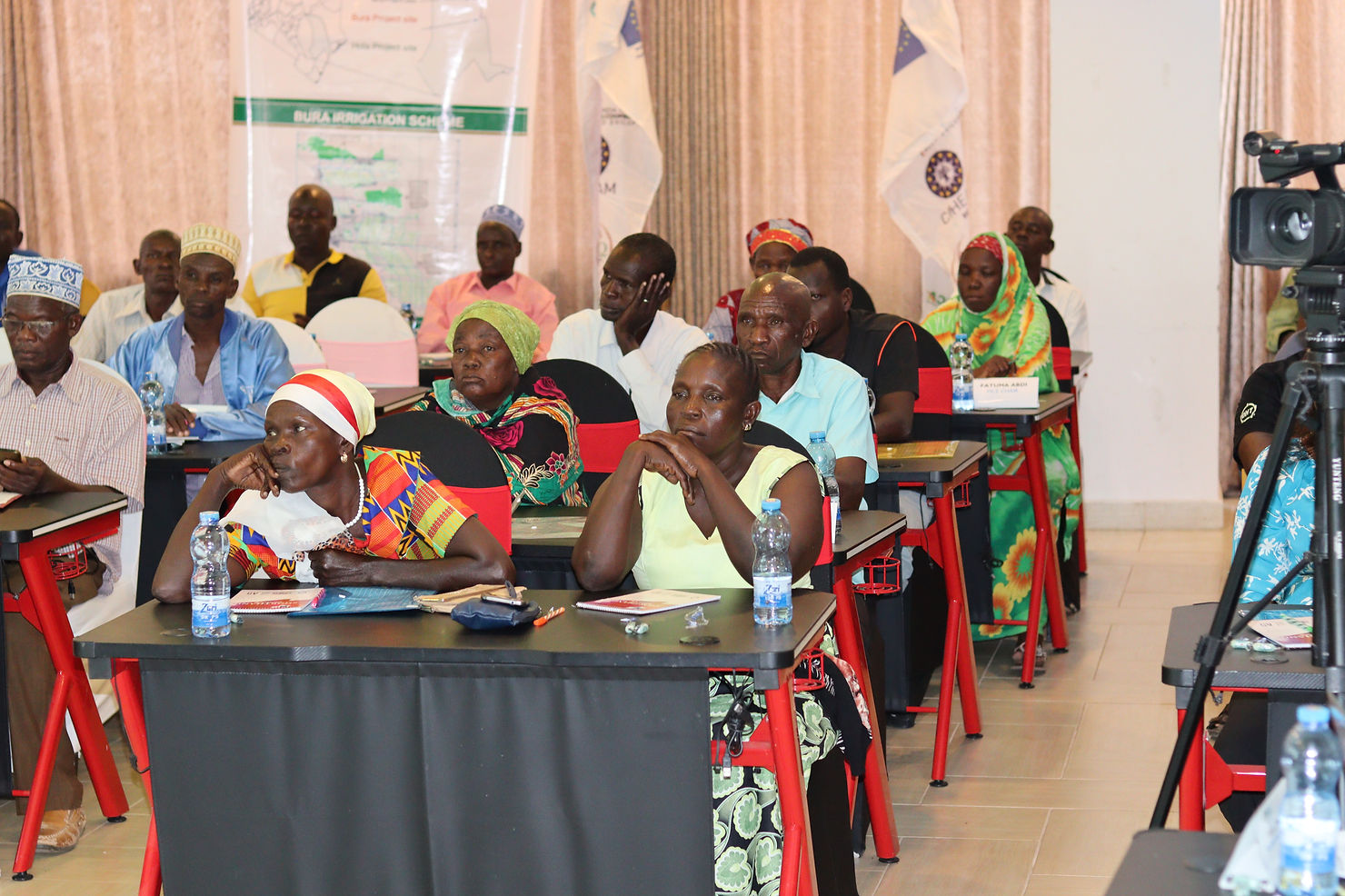Blog originally posted on the website of WATDEV
The Follow-Up Training on Best Management Practices (BMPs) and Innovations was organized by the Kenya Agricultural and Livestock Research Organization (KALRO) and the Association for Strengthening Agricultural Research in Eastern and Central Africa (ASARECA) on April 8th and 9th in Hola by the Tana River in Kenya. The workshop brought together diverse stakeholders committed to advancing sustainable agricultural practices in the region. Representatives from ASARECA, as well as from the National Irrigation Authority (NIA), the International Soil Reference and Information Centre (ISRIC), Pwani University, the County Extension Officer, and farmers from the Hola Irrigation Scheme attended the workshop. Mr. Moses Odeke, Technical Officer for Monitoring, Evaluation, and Learning at ASARECA, introduced the training by providing an overview of the WATDEV project and highlighting the objectives of the follow-up training.


The follow-up training was conducted by trainers Alexander Kubende, Kuria Kiarie, and Laura Dema Mikali, all of whom had previously been beneficiaries of the Training Course on Climate-Smart Agriculture held at CIHEAM Bari, Italy, from the 11th to the 16th of December 2023. During the workshop, participants discussed the selected two Best Management Practices (BMPs), Agroforestry and the establishment of Water Users Associations (WUAs). It was discussed how adopting WUAs plays a pivotal role in fostering effective water management by facilitating dialogue, resolving conflicts, and promoting local participation and how agroforestry serves as a critical strategy for addressing various environmental and agricultural challenges. In addition, during the workshop, the list of stakeholders who will be involved in the implementation of the BMPs was identified. Feedback and concerns from the stakeholders relating to the adoption of BMPs were recorded, and a list of agreed indicators was reached, along with a plan for data collection and a report for site-level training. The stakeholders were guided by Dr. Alice Murage, Senior Agricultural Economist at KALRO, through the chosen indicators for discussion and adoption, considering their relevance and data availability. Dr. Luuk Fleskens, a researcher at ISRIC, then delivered the modeling presentation, highlighting its importance, identifying models to be used, and listing the required data for the study setup. As part of the workshop, several stakeholders embarked on a field visit to the Hola irrigation scheme to identify opportunities for improvement through innovation. The event was officially concluded by Charles Wanjala, Project Manager at the National Irrigation Authority, Hola Irrigation Scheme.

This gathering served as a vital platform for knowledge exchange and collaboration, paving the way for tangible improvements in agricultural practices in the Lower Tana River. The success of the follow-up training emphasizes the importance of ongoing collaboration between local stakeholders and international partners in addressing pressing agricultural challenges and fostering innovation in water-efficient and climate-smart agriculture for a lasting impact on livelihoods and ecosystems in the area.


